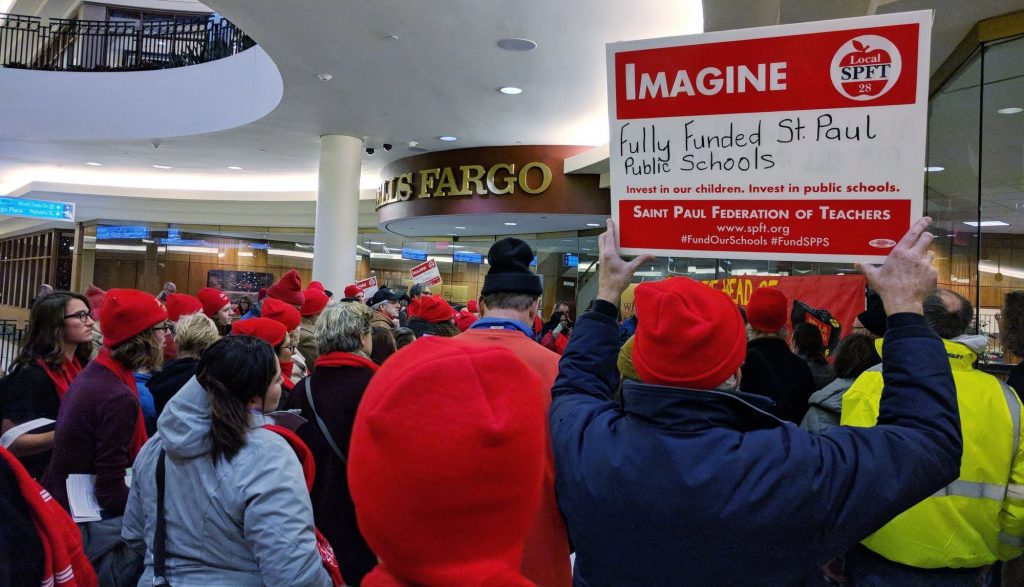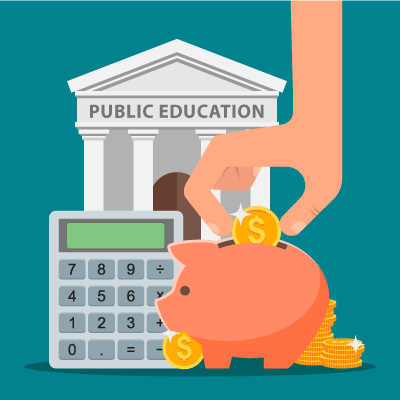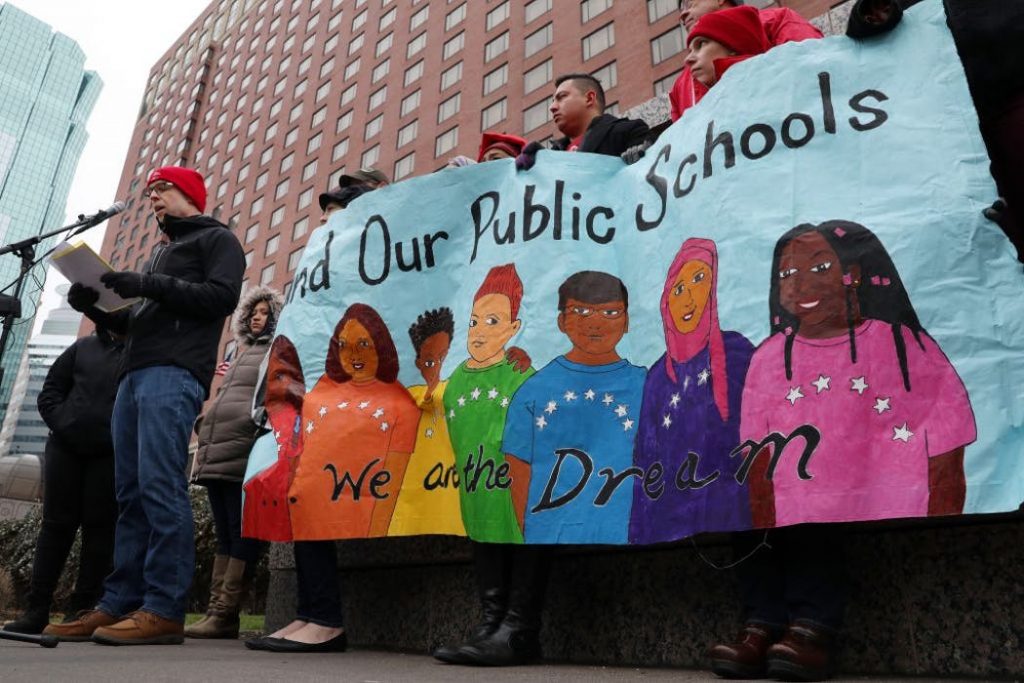Bargaining for the Common Good: Community Intervention and Resource Distribution in St. Paul Schools

Currently, the St. Paul School Board, along with school boards across the nation, have a tremendous amount of power and influence when it comes to determining where and how to distribute public resources to schools. Unfortunately, these resources are often not distributed adequately or equitably. In order to improve the quality of public school education in St. Paul, and in cities around the country, these issues of resource allocation must be fixed.
The goal of this forum is to provide community members with information about the current state of public education in St. Paul, with an emphasis on the current Educators strike and the concept of “Bargaining for the Common Good”. Many people find politicians to be unrepresentative of community interests specifically when it comes to education. This forum will explore methods, other than voting, that have the potential to create positive change regarding resource distribution in St. Paul K-12 education. Stakeholders include students, parents and families, teachers and school staff, educators’ unions, and administrators at all levels. Our intention is to have a panel of such stakeholders at the East Side Freedom Library to discuss how community members can influence or alter the current state of resource allocation at the local level.

Background
Education in the United States is funded in combination from federal, state, and locally generated funds. Although funding does come from all three levels, most urban school districts are primarily funded at the state and local level. The Minnesota state education budget is $543 million, which covers over 330 public schools and over 160 charter schools. In contrast, the Saint Paul public schools budget is $750 million, leaving about $14,000 per student, which demonstrates the gap between how much the state contributes to education and the amount schools need. Despite St. Paul alone spending more on education than the state, the St. Paul school district is still running a multimillion dollar deficit, forcing the city to pursue budget cuts. These cuts often come in critical areas, such as teacher support and extracurricular programs that lawmakers deem expendable. Many of the programs deemed expendable help disadvantaged students; cuts to these areas can serve to increase inequalities between demographic groups.
The current tension between Saint Paul educators and the city has resulted in an educators strike, which is driven in large part by cuts to areas like teacher support staff that educators feel are necessary to facilitate teaching. St. Paul educators are not alone; teacher strikes across the country in the last few years have been motivated by similar cuts to school budgets and programs. Unions and other groups of educators have begun using their position to bargain not just for increased pay or benefits, but also to push governments and school boards to fund programs educators know are essential for student success.
We are interested in facilitating a conversation around the issue of school budgets in St. Paul. At our forum, we want to discuss the various ways and means by which groups outside of the government are pressuring local and state actors to fund schools, programs, and staff despite the discrepancy between funding and need. We are interested in how these means can contribute towards more equitable forms of education.
Audience
Our target audience includes students (K-12 and college), parents and families, and broader community members. These people are the primary stakeholders in decisions around funding and resources, so we want this forum to be focused on how such stakeholders can participate in related decision making processes.

Expected Takeaways
As a strike among the St. Paul educator’s union seems more and more likely, we hope that this forum will help participants feel, overall, more engaged with the public K-12 education system in the city. A key focus of the forum is to generate options for community members to participate in the decisions made surrounding resource distribution in schools, as voting seems to not always be an effective method for inciting change. We hope that participants, both on the panel and in the audience, gain a sense of empowerment and connectedness with the decision-making process in St. Paul public education resource distribution.
Reading List
Basic information about strike demands and process: https://spfe28.org/strike-information/
Article on general budget: http://www.startribune.com/st-paul-schools-await-capitol-funding-verdict/510141722/
Article on bargaining for the common good:
Great article on the SPFE strike: https://www.truthdig.com/articles/teachers-demonstrate-how-to-save-americas-public-services/
“The Rise of the Teachers Unions.” Special Interest: Teachers Unions and America’s Public Schools, by TERRY M. MOE, Brookings Institution Press, 2011, pp. 26–65. JSTOR, www.jstor.org/stable/10.7864/j.ctt12616v.5. Accessed 23 Feb. 2020.
